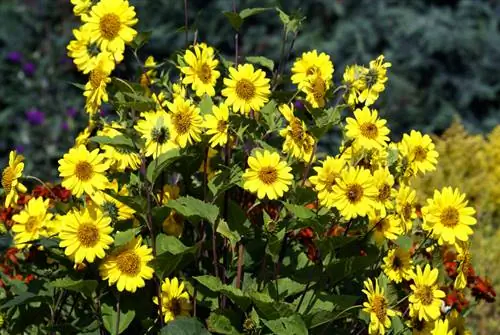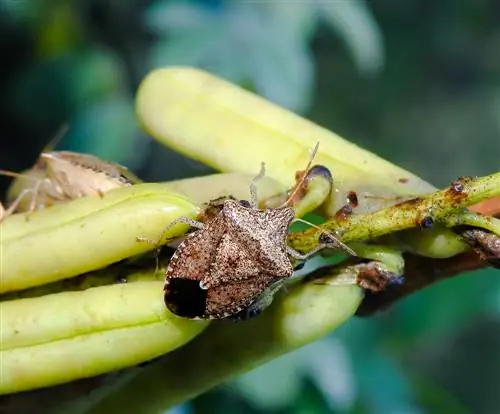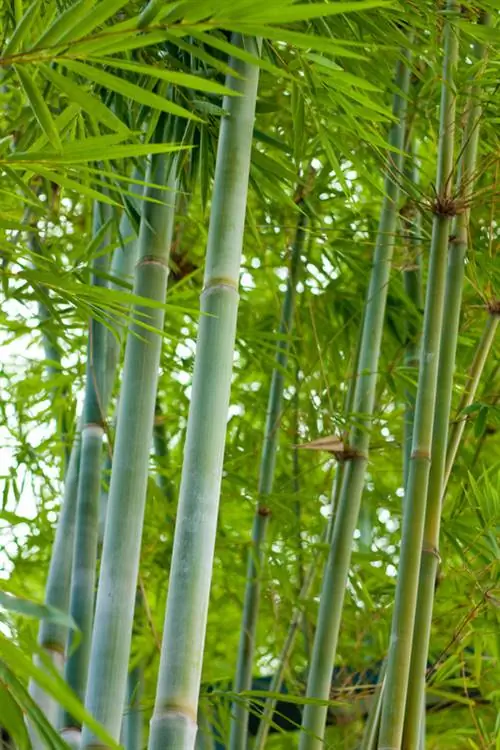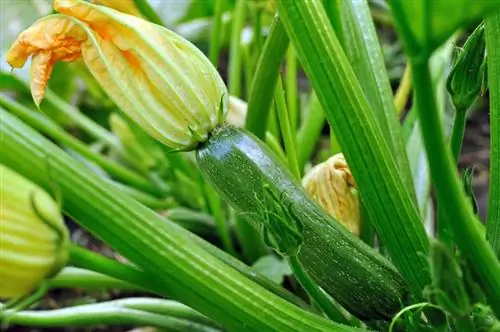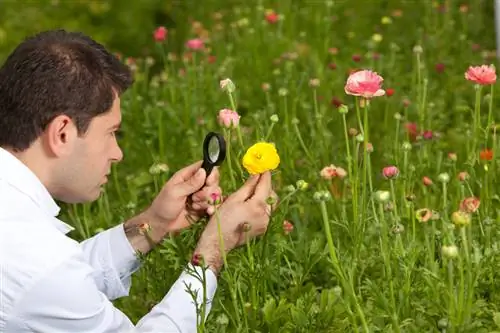- Author admin leonars@hobbygardeners.com.
- Public 2023-12-16 16:46.
- Last modified 2025-01-23 11:20.
If you want to save yourself the trouble of sowing annual sunflowers (Helianthus annuus) every year, you can plant sunflower perennials in the garden. They are perennial and mostly hardy. However, the seeds of these varieties are not suitable for consumption.
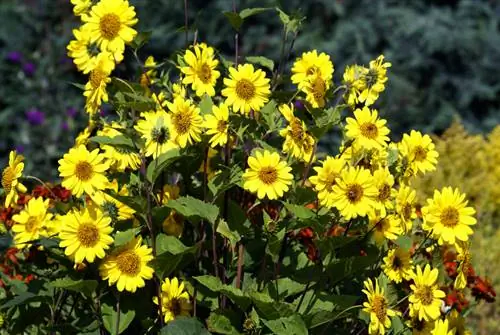
What is a sunflower perennial?
Sunflower perennials are perennial, mostly hardy plants with smaller flowers than their annual relatives. Well-known varieties are Helianthus atrorubens, decapetalus, giganteus, Microcephalus hybrid and tuberosus. They thrive in sunny locations and can be propagated via runners or division.
Smaller flowers and not quite as high
While annual sunflowers can reach more than four meters with good care, perennials remain somewhat smaller.
The flowers don't get nearly as big. In particular, the ring of tubular flowers in the middle, where the seeds develop, is usually quite small. However, a lot of flowers often grow on one plant.
Most sunflower perennials are hardy
Perennial sunflowers grow in any garden soil that is not too compacted. Just like their annual relatives, they thrive particularly well in a sunny location.
The perennials are mostly hardy. However, it makes sense to spread a blanket of leaves over the cut plants in autumn.
Some non-hardy varieties have to be dug up in autumn and overwintered in a frost-free place.
Propagation via runners and division
Perennial sunflowers also reproduce via seeds, but propagation works better by dividing the perennials or cutting off runners.
The roots of perennials form many runners, which sometimes even grow several meters away from the mother plant.
If you want to prevent the perennial sunflowers from spreading uncontrollably, you should create a root barrier (€42.00 on Amazon) before planting them.
Overview of well-known perennial sunflowers
| Name | Botanical name | color | Height | Flowering time | Special features |
|---|---|---|---|---|---|
| Perennial Sunflower | Helianthus atrorubens | Yellow, brown eye | up to 180 cm | August to September | Insect pasture |
| Meteor | Helianthus decapetalus | Golden yellow, yellow eye | up to 170 cm | August to October | semi-double flower |
| Soleil d’or | Helianthus decapetalus Supreme | Lemon yellow, golden yellow eye | up to 170 cm | August to October | double flower |
| Sheila’s Sunshine | Helianthus giganteus | Light cream yellow, dark yellow eye | up to 300 cm | September to November | late variety |
| Lemon Queen | Helianthus Microcephalus Hybrid | Lemon yellow, yellow-brown eye | up to 170 cm | August to September | rich blooms |
| Jerusalem Jerusalem artichoke | Helianthus tuberosus | Yellow, brown eye | up to 250 cm | September to November | edible tubers |
Tips & Tricks
Jerusalem artichoke is valued as a winter vegetable because of its potato-like root tubers. This sunflower perennial is indestructible and spreads rapidly throughout the garden.

